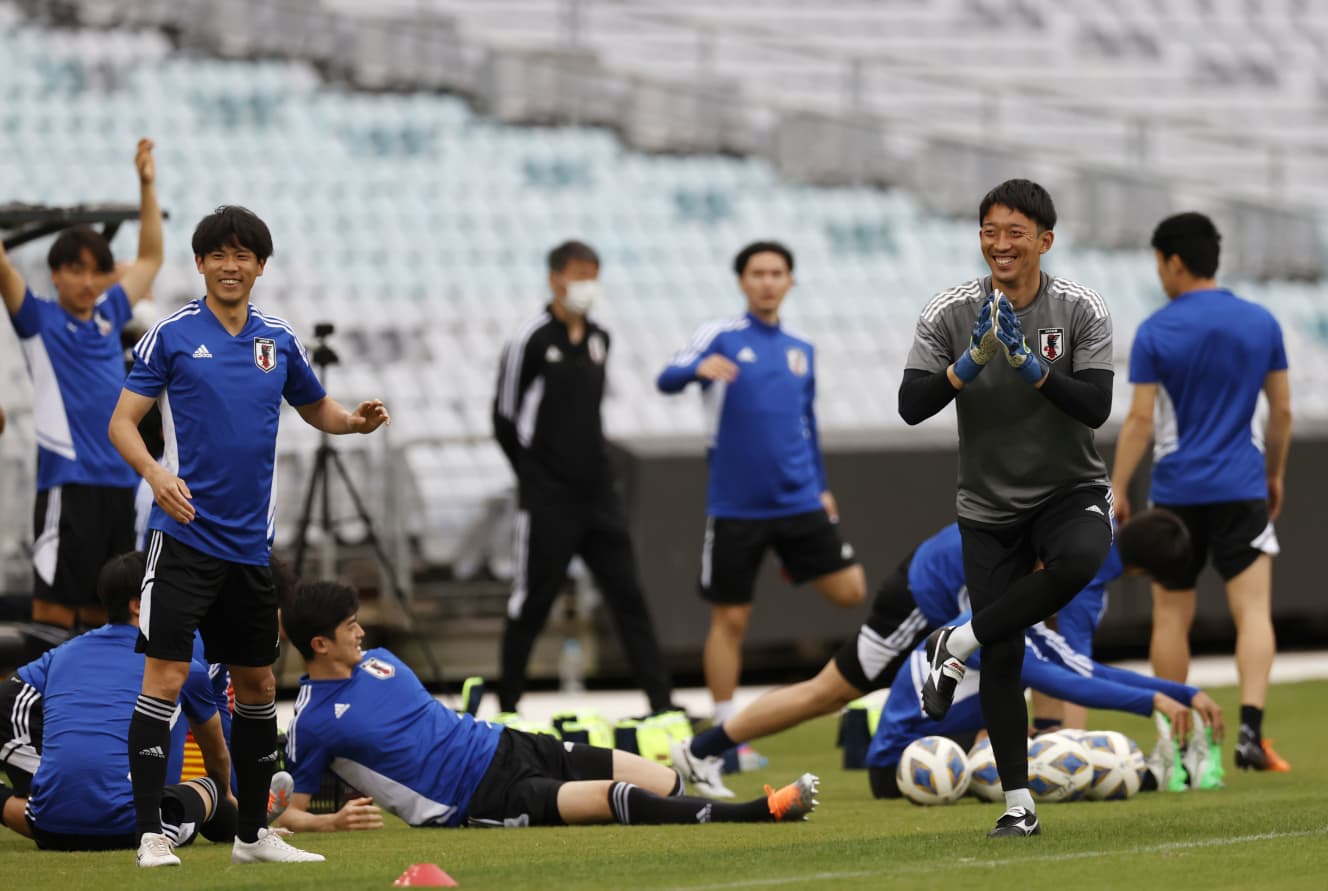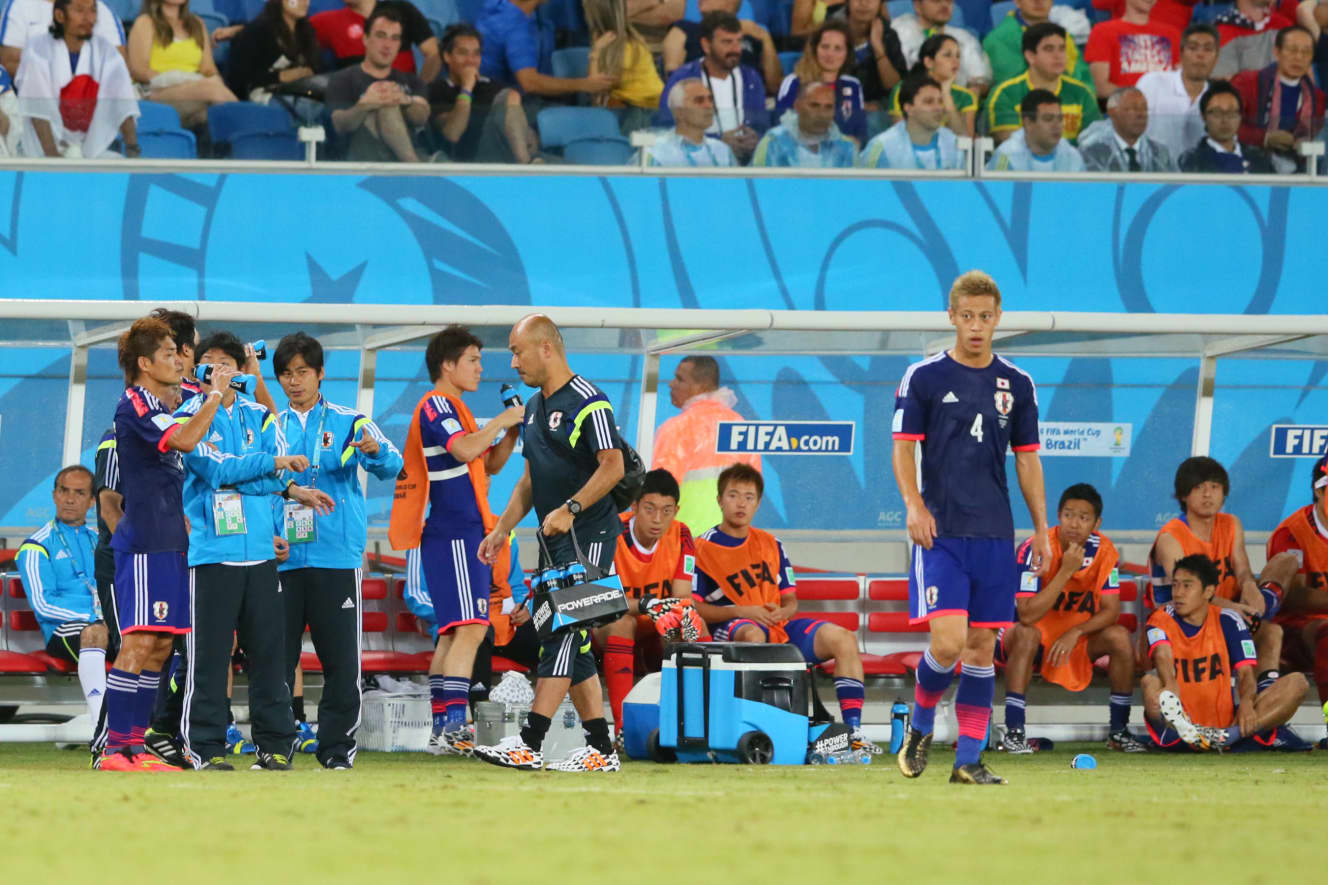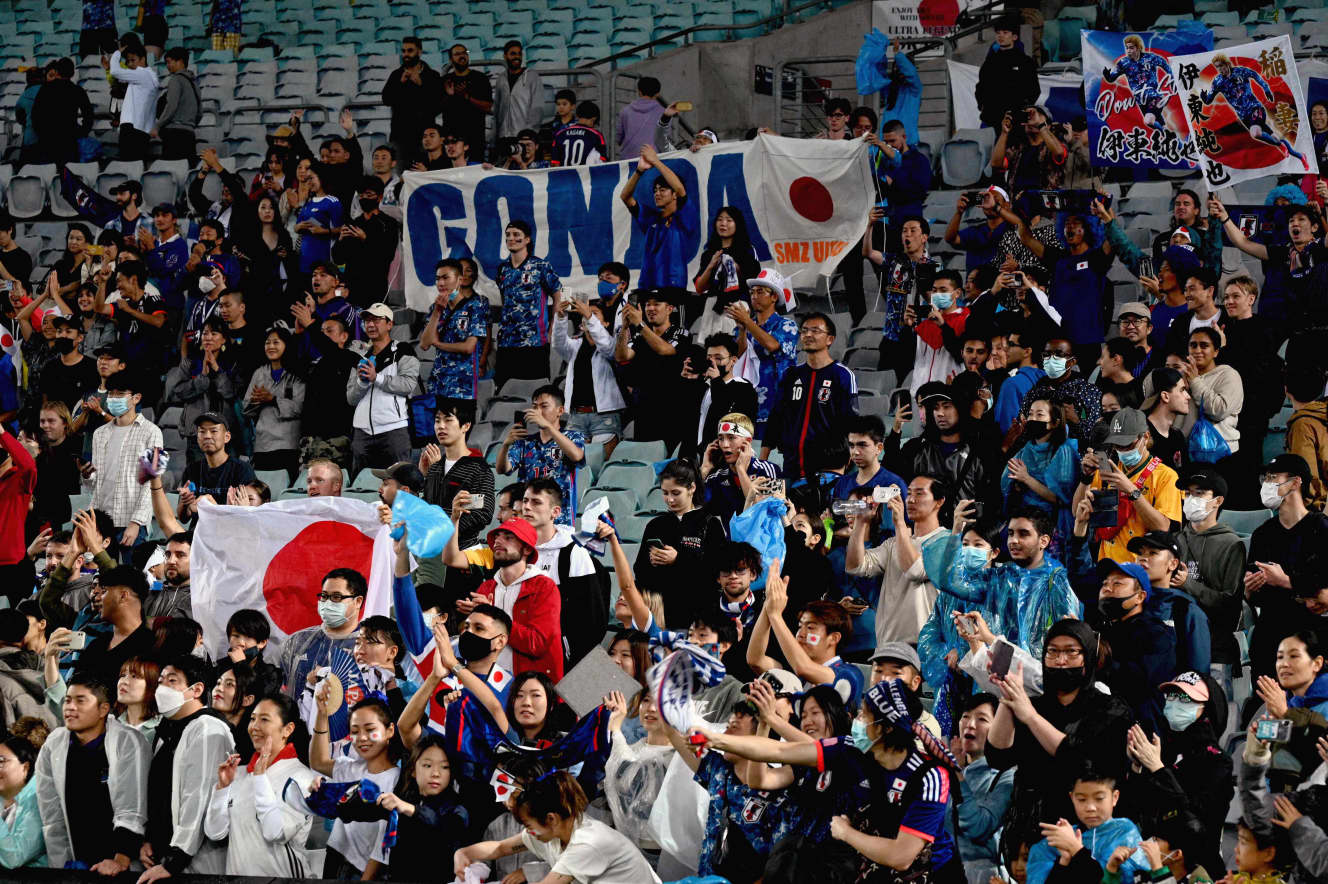How goalkeeper Shuichi Gonda, who thought about retiring due to depression, rose to become the national team’s guardian deity

Japan’s national soccer team beat Australia 2-0 away from home on March 24 to qualify for its seventh consecutive World Cup (World Cup). Gonda Shuichi ( Shimizu S-Pulse), a goalkeeper who started and played in every game of the Asian qualifiers that began last September, has returned to the national team after overcoming a fierce battle with “a kind of depression” (according to him).
Looking back on those days, I can’t believe that I am playing like this now… I didn’t want to do anything before it was difficult to stay active. I was apathetic.
The symptoms of “Overtraining Syndrome,” which was publicized by FC Tokyo, my team at the time, differ from person to person. In my case, it was a kind of depression. I just couldn’t sleep. And yet, I couldn’t get up. One of my seniors at junior high school was the owner of a yakiniku restaurant, and when it was difficult for me to even practice, I asked him if he would hire me if I couldn’t continue working.
Gonda kept Japan in the goalmouth for nine games in the final Asian qualifying rounds. He has made a number of fine plays in the shadow of the goal, observing the movements of the opposing players until the last possible moment and making good decisions to avoid allowing a goal by hitting his body. Seven years ago, Gonda was battling an invisible enemy in the “darkness,” with no way of knowing what the future held.
He made his debut in the J-League at the age of 19 and was selected for the Japan national team at the age of 20. Stoic Gonda, who says his life’s theme is to “grow every day,” struggled with the gap between the evaluations of those around him and his own self-esteem.
At the time of the World Cup in Brazil, I honestly thought, ‘I’m still at a level where I shouldn’t be in the Japan national team,'” he said. For example, Eiji Kawashima, the goalkeeper at the World Cup in Brazil, played for Belgium, and Shusaku Nishikawa was the regular goalkeeper for the Urawa Reds, a team that competes for the championship every year. I was playing for FC Tokyo, but the team was in a slump, finishing 10th or 11th. I felt that in order to be able to play for the national team, I had to be able to play well as the team improved.
After returning to the team after the World Cup, Gonda got closer to the ideal he had envisioned: a strong first half of 2015 for FC Tokyo, which by the end of June was in second place behind Urawa Reds and had conceded 18 goals in 17 games, the third fewest in the entire league. Just as FC Tokyo was beginning to feel that its ability was finally beginning to show, a major turning point came when coach Halil Hodzic, who was leading Japan’s national team in a June 17 J.League match against Singapore, called up four goalkeepers, one more than usual. However, on the day of the match, only Gonda was not even on the bench.
Gonda, however, was not even on the bench on the day of the match. I think it was around 11 p.m. after the game against Singapore. In the car on the way home, I called the trainer I was working with at the time and asked him to train me first thing tomorrow morning. I said to him, “I can’t do it anymore, it’s too much. I was mentally driven to the point where I thought, ‘This is it, it’s over.
Normally, it would have been better to take some time off for a change of pace. However, Gonda tried to regain his confidence by practicing more. This caused an imbalance between body and mind. This triggered the onset of a “kind of depression.

It was the “sleeping face” of my eldest son that inspired me to get back on my feet…
After this state of mind, I no longer enjoyed practicing.
I wondered if there was any point in doing this practice, if it was all a mistake now.”
He returned to FC Tokyo and managed to play in the next seven J-League games, but after the Sendai game on July 29, Gonda’s body and mind completely screamed when the J-League intermission began. Gonda had been selected for Japan’s national team for the East Asian Championship, but withdrew from the squad, leading to the aforementioned public disclosure of “overtraining syndrome.
When Gonda’s physical and mental balance was severely disrupted and he no longer wanted to play soccer, which was supposed to be the center of his life, it was an ordinary moment in his daily life that prompted him to get back on his feet.
After my illness was announced, I couldn’t get out of bed for two whole days, but when I looked next door, I saw my then 2-year-old son napping. I thought his sleeping face was ‘cute,’ so I got up with my son just as he woke up.
I thought, ‘I enjoy going to the park with my son,’ and I was able to go outside.
He decided to leave the gym where he had been working and start a new gym because he wanted to renew his commitment to FC Tokyo. The person who introduced him to this gym was the senior student from junior high school who owned a yakiniku restaurant, as mentioned earlier. Through his own contacts, he was introduced to a gym run by Masashi Kawaguchi, a former Japanese national football player. How can a Japanese athlete with a Japanese physique display the explosive power that a foreigner can display? Gonda resonated with the idea of this gym, which was researching how to move the body.
Three months after taking a break, Gonda recovered enough to return to practice matches in November 2015, but even though his body had recovered, his mind was not fully back. He made the decision.

I need your help, Gon-chan.”
Keisuke Honda, who had played with Japan at the World Cup in Brazil, approached us, and Honda’s management company, which had continued to play for AC Milan, joined the management of SV Horn, a Dutch third-division club. Through this connection, knowing that Gonda was far from perfect, he asked for Gon-chan’s help. I want you to pass on your past experience to the younger players,” he said.
At that time, Horn’s level was equivalent to J2 or J3. Gonda had always wanted to play in Europe, and needed a change of environment to recover his physical condition, so this was a good opportunity for him.
I think I learned to separate myself in a good way by going abroad,” he said. Before I got sick, I didn’t have any room or composure in me. Looking back at myself at the time, I can understand why Halil Hodzic removed me from the team. In the end, I was egotistical.
Everything was prepared for me in Japan, and when I saw a player who was in such a blessed environment but neglected his defense, I could not forgive him at the time, and I would express my feelings straight to that player, sometimes clashing with him.
But when I went to the third division in Austria, even for away games, I would sometimes have my pre-match snacks at a parking lot on the way to the game. I think that being in an environment where I had no choice but to give up helped me to have a sense of freedom that I didn’t have before.
After playing one season in Horn, he moved to Tosu in the J-League in 2017; in 2019 he moved to Portimonense in the Portuguese First Division and will play for Shimizu in December 2020. Since becoming a part of the “soccer kingdom,” the new coronavirus has spread. Some Shimizu players have been infected, but we are actively trying to communicate with them so that they do not feel down.
I feel that the more people who are properly prepared for infection and can think of themselves in terms of external factors, the more they will hold it in when they become infected. …… When the mind is closed, the small happiness that we feel when we are healthy becomes invisible. But finding a little joy can open the door to our hearts. I myself have been saved by the sleeping face of my son.

No Japanese goalkeeper has ever returned to the World Cup after two tournaments.
Gonda’s attentiveness also lived on in the Japan national team. In January this year, captain Maya Yoshida (Sampdoria, Italy) and Takehiro Tomiyasu (Arsenal), key players in the defense and spiritual pillars of the team, were both injured and were unable to join the team for the games against China and Oman. Itakura Koh (Schalke) and Shogo Taniguchi (Kawasaki F), two inexperienced starters for the national team, were assigned to the final line. Even without their steadfast, dependable members, the team was not rushed.
In the Corona Disaster, it is possible for a player who was scheduled to play the day before the match to leave the team, so when I play the red-and-white matches for the national team, I always try to see how the other players play, not just the players on my own team. I am also interested in what they are trying at their clubs, so I usually watch what other players are doing.
As a result, the two games in January were scoreless. Gonda, who has grown in size and depth as a person through his various experiences, is now able to prepare for all possibilities. This has helped to create a sense of security that makes the team feel less threatened in a pinch.
He says, “Now I play with a sense of giving back to the people who have helped me so far. My wife, my son, my junior high school seniors, Mr. Honda, and the coaches of the developmental age, if any one of them had been missing, I don’t know if I would be where I am today…. I also feel that if I show the staff of FC Tokyo, who found me, that I am playing well, it may lead to their success.
I could not contribute anything to the team at the World Cup in Brazil. If I am able to participate in the World Cup this time, I would like to work backwards from the point of view of what is needed for the Japanese national team to achieve results, and work on my daily S-Pulse training.”
Of all the goalkeepers in the Japanese national team who have participated in the past six World Cups, none have returned to the big stage after two tournaments. Gonda, who stood on the bright stage as a youngster, was plunged into darkness once, and then climbed back up with the help of a ray of hope, will be a reassuring guardian god just by being there.